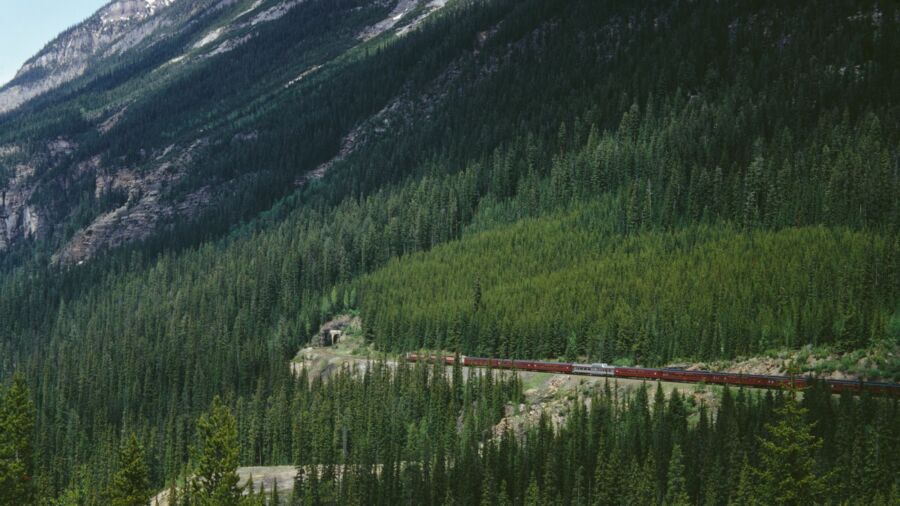State officials are investigating the second derailment of a train carrying hazardous materials in Minnesota, according to Gov. Tim Walz.
A Canadian Pacific train carrying hazardous materials derailed near the Kittson County town of Lancaster, located roughly 10 miles south of the Canadian border, at around 4:30 p.m. on May 31, officials told CBS News.
Video footage of the derailment shared on Twitter shows some of the cars piled high on top of each other. They do not appear to be on fire and no smoke can be seen.
On Twitter, Walz said state officials are working with local emergency managers to inspect the site and conduct clean-up efforts following the incident.
“Glad to hear that no injuries are reported and the site is contained,” the governor said. “Experts are on the way to survey the site and make sure the community has everything they need.”
According to the Lancaster Fire Department, which responded to the derailment, approximately 27 of the cars went off the tracks, some of which were carrying hazardous materials which they identified only as “flammable Liquid NOS.”
However, there have so far been no leaks reported from the rail cars and no injuries have been reported following the derailment, according to officials.
In a separate statement, fire department officials asked people to avoid the area.
Travel Alert Issued
Canadian Pacific officials noted that the derailment did not occur along a waterway, reducing the chance that any hazardous materials on board would quickly spread.
Elsewhere, the Minnesota Department of Transportation issued a travel bulletin noting that drivers heading south on Highway 59 will be detoured to Highway 175/Kittson County Road 5 owing to the derailment.
The detour arrangement will be in place until the late evening on June 3, the department said.
Wednesday’s incident marks the latest derailment in Minnesota after a 23-car freight train derailed in a fiery crash near the southwestern Minnesota town of Raymond in March.
Approximately 10 of the cars were carrying ethanol, and several of them caught fire after the train, operated by Burlington Northern Santa Fe, went off the tracks at around 1 a.m. local time.
Residents were subsequently evacuated from the area but were able to return roughly 12 hours later. No injuries were reported.
The National Transportation Safety Board issued its preliminary report on the derailment in April and said damages to equipment and track infrastructure are estimated to total about $1.9 million.
Investigators said they were analyzing a section of fractured rail following the crash but did not state if the broken rail was the cause of the derailment.
The probe remains ongoing.
Another Canadian Pacific Train Derails
Wednesday’s incident also comes just days after another Canadian Pacific train carrying hazardous materials derailed on Tuesday at around 5:15 p.m. near Balfour, North Dakota.
Three of the cars were carrying items including lithium batteries and four small drums of methanol, according to reports, but none of those materials were spilled and no injuries were reported, according to officials.
In February, a Norfolk Southern train derailed in East Palestine, Ohio—a small town of about 5,000 people—and led to a five-day evacuation of residents.
That Feb. 3 incident led to a spill of toxic chemicals. A controlled release of the chemicals onboard, which included vinyl chloride, ethylhexyl acrylate, ethylene glycol monobutyl ether, and butyl acrylate, was conducted three days later. The controlled release also sent phosgene and hydrogen chloride into the air.
Residents in the area subsequently raised concerns over the long-term impacts on their health and reported an array of health issues such as rashes and a burning sensation in their lungs and eyes.
Some claimed to have been diagnosed with bronchitis associated with exposure to chemicals following the incident.
Wednesday’s derailment also comes just one day before Walz is set to sign a newly-passed infrastructure bill that will provide billions of dollars in funding to improve roads and rail lines throughout the state.
The Epoch Times has contacted Canadian Pacific for further comment.
From The Epoch Times

